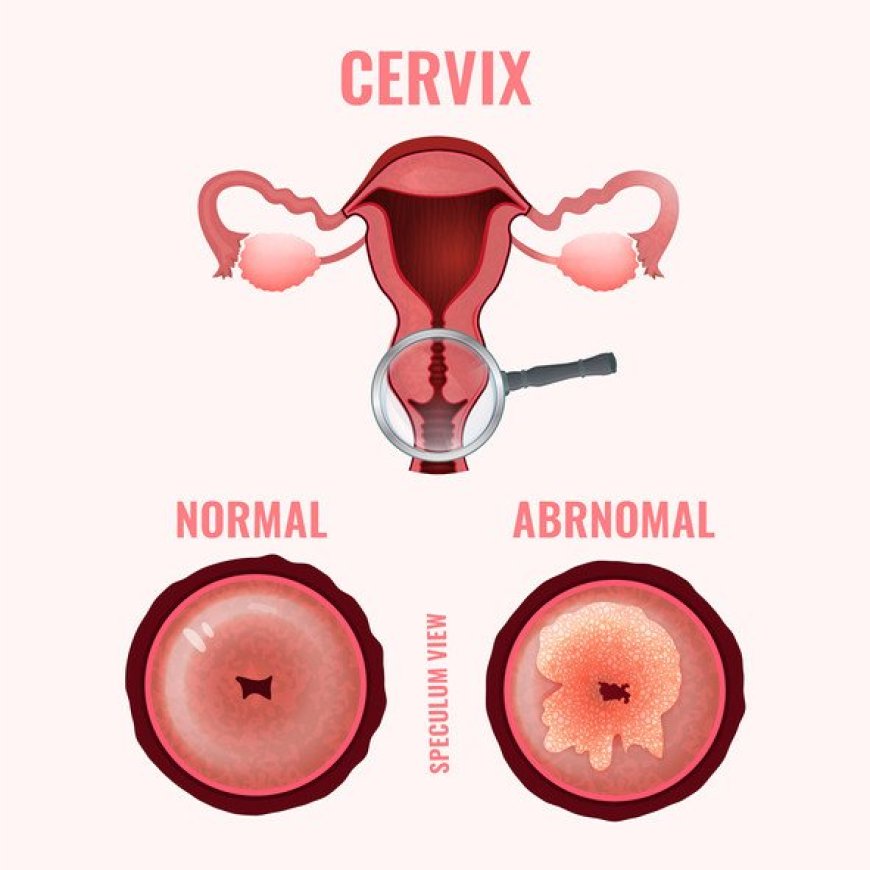Abnormal Pap Test

Introduction:
In the diverse and culturally rich country of India, where women play a crucial role in society, there is a critical health screening that helps protect their well-being. This screening is known as the Pap Test, and sometimes, it may show results that require further attention. Today, we will uncover the mysteries of an Abnormal Pap Test. We will explore the signs and symptoms, what it is, how it's classified, what causes it, risk factors, different types, diagnostic tests, treatments, complications, and some simple ways to promote women's health in India. So, let's embark on a journey to safeguard women's well-being and celebrate their strength!
Sign and Symptoms:
An Abnormal Pap Test is like a watchful guardian that may indicate potential issues with a woman's cervix. It usually does not cause any symptoms itself, but it can lead to some common signs like:
- Spotting or irregular bleeding between periods, like little drops of blood outside the regular cycle.
- Pain or discomfort during sexual intercourse, like a feeling of pressure in the lower abdomen.
- Unusual vaginal discharge, like an increase in discharge that looks different from usual.
What Is Abnormal Pap Test? :
An Abnormal Pap Test is like a helpful messenger that signals the possibility of changes in the cells of a woman's cervix. The Pap Test is a screening test to detect early signs of cervical cancer or other abnormalities that may require further investigation.
How Is Abnormal Pap Test Classified? :
An Abnormal Pap Test can be classified based on the level of cell changes observed in the cervical sample. Some common classifications include:
- Atypical Squamous Cells (ASC): When there are slight changes in the squamous cells on the cervix, which may require further examination.
- Low-Grade Squamous Intraepithelial Lesion (LSIL): When there are mild cell changes, which may resolve on their own or require further monitoring.
- High-Grade Squamous Intraepithelial Lesion (HSIL): When there are more significant cell changes that may need further evaluation and treatment.
Causes and Triggers:
The exact cause of an Abnormal Pap Test is like a puzzle waiting to be solved, but it is usually related to infections with certain strains of the human papillomavirus (HPV). Some common triggers for an Abnormal Pap Test in India include:
- HPV Infections: Certain strains of HPV can cause changes in the cervical cells, leading to an abnormal Pap Test result.
- Other Infections: Infections with other bacteria or viruses may also contribute to an abnormal Pap Test result.
Risk Factors with Examples:
Certain factors can increase the risk of having an Abnormal Pap Test, just like some kids may have a higher chance of getting a cold if they don't wash their hands regularly. Some risk factors include:
- HPV Infection: Women who have been exposed to HPV through sexual contact may have a higher risk of an Abnormal Pap Test.
- Smoking: Women who smoke are at a higher risk of cervical cell changes and an abnormal Pap Test.
Types of Abnormal Pap Test with Detailing for Each Type:
An Abnormal Pap Test can vary based on the type and level of cell changes observed. Some common types include:
- ASC-US (Atypical Squamous Cells of Undetermined Significance): When there are slight changes in the squamous cells that may require further examination.
- LSIL (Low-Grade Squamous Intraepithelial Lesion): When there are mild cell changes that may resolve on their own or require further monitoring.
- HSIL (High-Grade Squamous Intraepithelial Lesion): When there are more significant cell changes that may need further evaluation and treatment.
Diagnostic Tests and Treatments:
To investigate an Abnormal Pap Test, doctors may perform a colposcopy, where they use a special microscope to examine the cervix closely. Some common treatments include:
- Colposcopy: A colposcopy helps doctors visualize any abnormal areas on the cervix and take biopsies if needed for further evaluation.
- LEEP (Loop Electrosurgical Excision Procedure): In some cases, a small piece of abnormal tissue may be removed using an electrical wire loop.
Complications of Abnormal Pap Test and Prevention Techniques:
An Abnormal Pap Test itself is not a disease, but it may indicate potential issues that need attention. To promote women's health, regular Pap Test screenings and getting vaccinated against HPV can be essential prevention techniques.
An Abnormal Pap Test might be like a watchful guardian that protects women's health in India, but with the right knowledge and timely medical attention, we can promote early detection and effective treatment. Just like we cherish the diverse roles women play in our society, their well-being is crucial to the fabric of India. By promoting regular Pap Test screenings, raising awareness about HPV vaccinations, and providing support and care to
What's Your Reaction?
 Like
0
Like
0
 Dislike
0
Dislike
0
 Love
0
Love
0
 Funny
0
Funny
0
 Angry
0
Angry
0
 Sad
0
Sad
0
 Wow
0
Wow
0









































































